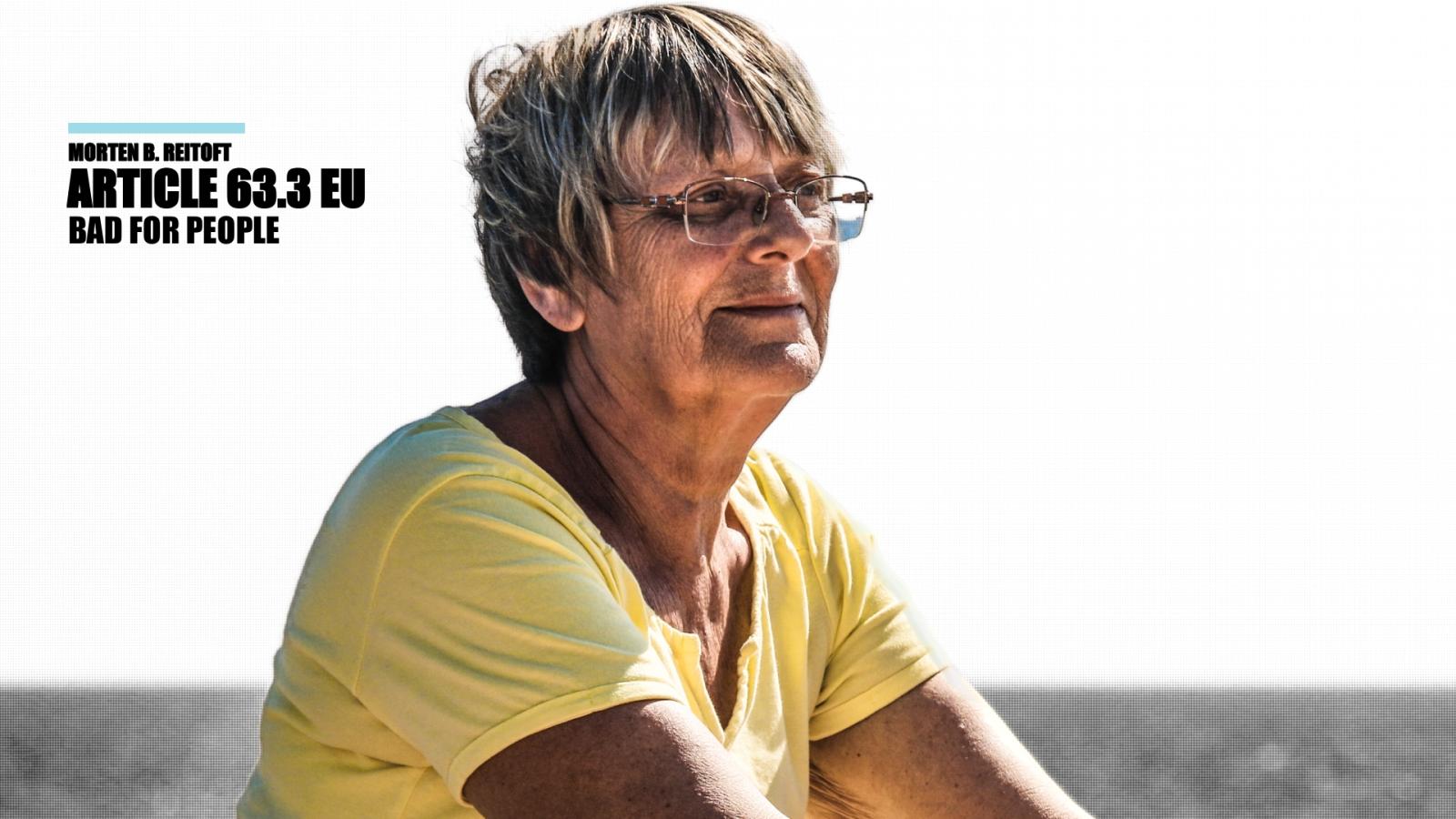
By Editor Morten B. Reitoft
My mom was born in 1945 and has always been active as a nurse. Before she retired, she managed an elderly home and more than 400 employees. She used MS Word, Excel, and other software at a relatively high level. My mom is still active and is a volunteer in her neighborhood, helping other people as much as she can. My mom is in many ways well functioning; however, her memory, particularly her ability to use IT, saturates. My mom also has migraines and, therefore, takes different types of medication. Imagining her using a QR code to read the inlays of the medicine is a joke. My siblings and I already help with almost everything that relates to IT - from banking to official emails and everything in between. Do she and other people I know use the inlays a lot? Probably not, but if you are old, sick, or in a situation where you need rapid answers to the effects of your medicine, using electronic means is not OK.
My wife is a nurse. She is a specialist in Chronic Obstructive Pulmonary Disease. When people have this disease, they take medicine, use different medical devices, and generally speaking have limited life quality and maybe even less a surplus in life to struggle to find answers using QR codes and computers.
When the European Union suggests making inlays electronic instead of on paper, this is a disgrace to the people who need this information - but it's also a disgrace to the general public. Everybody can get sick, and everybody can be in positions where access to information can't be dependent on whether you have a phone or a computer - or even an active connection, to get information that can be vital. It's also a disgrace as it serves no purpose. The cost of producing the inlay is so marginal that this will not influence consumer pricing, so who is the EU supporting with this law? Nobody but the pharma industry.
To have information available on both paper and electronically is already a fact, so my recommendation is status quo. We don't need to change anything here. The inlays have a nominal cost and zero damage to the consumer (on the contrary), and the alternative is worse.
We will ask 'Ældresagen,' 'Dansk Sygeplejeråd,' and the doctor's organization 'Yngre læger,' in Denmark to raise their voice against the EU on this matter, and I recommend that you all do the same in your countries!
--
Tue September 3rd
Emt international demon...
EMT International is returning to PRINTING United Expo with an end-to-end direct mail digital finishing line on booth C2731, September 10-12
Emt international chame...
EMT International announces its Chameleon RFX roll-to-roll rewinders and unwinders web widths are now designed standard at 23” (584mm).
Tue August 27th
Spencermetrics joins bo...
Creating a partnership of SpencerMetrics' innovative data-driven productivity solutions and BMI
Thu June 27th
Hiflow solutions offers...
Windows-based app gives users an easy-to-use imposition solution to replace costly and error-prone manual imposition processes.
Wed June 26th
Top 8 mind blowing prin...
While printing may appear to be a simple process, there are some interesting facts about this art form that you may not be aware of.
A comprehensive guide t...
As the world of e-commerce continues to expand, Shopify has emerged as a leading platform for businesses looking to establish a strong onlin
Tue June 25th
Factor druk bombed by r...
The story must be told, and we have decided to send Editor-in-Chief, Morten B. Reitoft to Kharkiv
Sun June 23rd
Respect for innovation ...
The small Danish company OnPrint has developed a sustainable alternative to a Roll-Up - now Patent Pending
Fri June 7th
Designnbuy releases des...
Dallas, Texas – DesignNBuy, a leading provider of web to print solutions, announced the launch of DesignO 2.0, a revolutionary web to print...
Wausau container corpor...
Paperboard manufacturer positions itself for the future by embracing an automated Industry 4.0 solution.
Subscribe
Subscribe to our INKISH newsletter
Login
New User? Signup
Reset Password
Signup
Existing User? Login here
Login here
Reset Password
Please enter your registered email address. You will recieve a link to reset your password via email.
New User? Signup